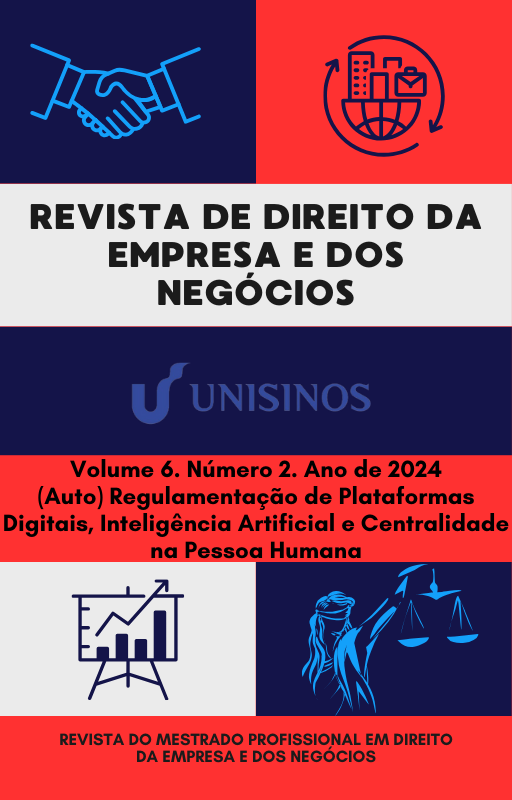PARTIAL ALGORITHMS AS A NEW FORM OF DISCRIMINATION:
a principle-based regulation proposal supported by three axes
Resumo
This article examines the intersection of digital platforms, regulation, and artificial intelligence, with a focus on the centrality of the human person. It analyzes the increasing juridification of codes of conduct for digital platforms and their impact on the regulatory framework. The protection of minors online, particularly against cyberbullying and sexual abuse, is discussed as an urgent priority. Additionally, the text explores how platforms can absorb discriminatory algorithmic patterns and proposes principle-based regulations to mitigate these distortions. Innovative concepts such as the theory of the electronic body and freedom of expression in digital spaces are introduced. Finally, the article addresses the legal challenges posed by the digitalization of contracts and data protection, emphasizing the importance of sustainability in law and digital platforms. This work invites a critical reflection on the legal and social implications of modern technology.
KEYWORDS: codes of conduct; co-regulation; digital plataforms; algorithmic discrimination; data protection.
Downloads
Publicado
Edição
Seção
Licença
Copyright (c) 2024 Revista de Direito da Empresa e dos Negócios

Este trabalho está licenciado sob uma licença Creative Commons Attribution-NonCommercial-NoDerivatives 4.0 International License.
Concedo à Revista de Direito da Empresa e dos Negócios o direito de primeira publicação da versão revisada do meu artigo, licenciado sob a Licença Creative Commons Attribution (que permite o compartilhamento do trabalho com reconhecimento da autoria e publicação inicial nesta revista).
Afirmo ainda que meu artigo não está sendo submetido a outra publicação e se foi publicado na íntegra em outro periódico e assumo total responsabilidade por sua originalidade, podendo incidir sobre mim eventuais encargos decorrentes de reivindicação, por parte de terceiros, em relação à autoria do mesmo.
Também aceito submeter o trabalho às normas de publicação da Revista de Direito da Empresa e dos Negócios acima explicitadas.

